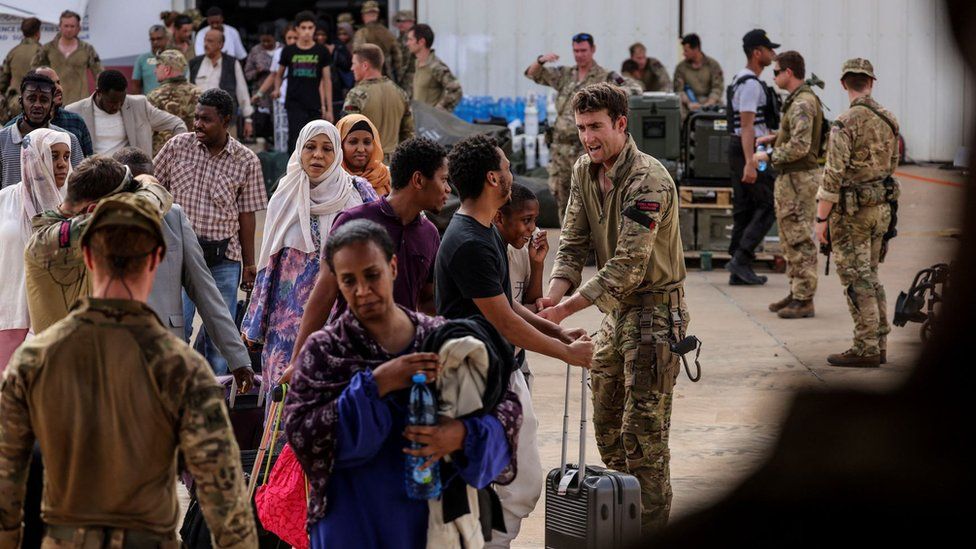ARTICLE AD BOX
 Image source, Reuters
Image source, Reuters
British nationals have been evacuated to Cyprus, before flying to the UK
By Paul Adams & Charley Adams
Diplomatic correspondent
An operation to evacuate people from Sudan has been "extremely successful", a government minister has said.
A deadline for British nationals to reach an airstrip north of the country's capital Khartoum, for the UK's final rescue flights, has expired.
"We can't stay there forever in such dangerous circumstances," said Foreign Office minister Andrew Mitchell.
There has been almost two weeks of fighting in Sudan, leaving hundreds dead and hundreds of thousands fleeing the country.
A 72-hour ceasefire between the rival factions - which followed international diplomatic efforts - has not held.
More than 1,650 people have been evacuated from the capital Khartoum and more than 1,000 have been flown to the UK, the government said.
Other countries have been frantically evacuating their citizens - with people also fleeing by boat and bus.
Speaking in Nairobi, Mr Mitchell said it was right that the evacuation flights were ending.
"I don't think there's a single Brit in Khartoum who won't know about the evacuation and the flow of people who've been coming to the airport indicate that that is correct," he told the BBC.
Referencing a Turkish evacuation plane that was fired at when coming into land, Mr Mitchell described the situation at the Wadi Seidna airfield as "extremely dangerous".
He said the UK government was "looking at every single option to help British citizens who are caught up in this terrible crisis".
Millions of people remain trapped in Khartoum, where there are shortages of food, water and fuel.
Watch the moment Muammar Ali is reunited with his three-month old baby daughter, his wife and their son
The Ministry of Defence has told the BBC flights will continue to leave Sudan until all those people who registered at the airfield before the deadline of midday local time (11:00 BST) have been evacuated.
Meanwhile, the UK has set up an office to help British nationals trying to flee the country at coastal city Port Sudan.
Mr Mitchell also said he was concerned about what would happen in Sudan, adding that the situation could become "incredibly serious" unless there was a permanent ceasefire.
"The whole international system is looking at ways of stopping this fighting" he said, "which after all is two generals slugging it out for power".
Mr Mitchell said the international community was determined to secure a ceasefire "with good negotiations, opening up the political space for a civilian administration".
The UK, which began evacuations last Tuesday, has faced criticism for not reacting quickly enough to help its citizens.
More than 20 NHS medics were initially told they could not board flights because they were not British nationals, despite having UK work permits.
A change of heart came after the plight of Sudanese doctor Dr Abdulrahman Babiker came to light. He was in Sudan visiting relatives for Eid when the fighting broke out.
He was initially refused a place on a British evacuation but after media coverage and contacting his MP, the evacuation criteria was widened and he was allowed to join. He landed in the UK on Saturday afternoon.

 1 year ago
22
1 year ago
22








 English (US)
English (US)